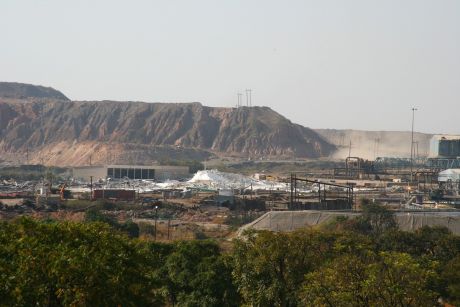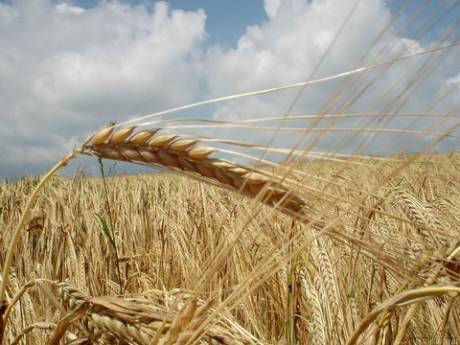|
Blog Feeds
Anti-Empire
The SakerIndymedia Ireland is a volunteer-run non-commercial open publishing website for local and international news, opinion & analysis, press releases and events. Its main objective is to enable the public to participate in reporting and analysis of the news and other important events and aspects of our daily lives and thereby give a voice to people.
Public InquiryInterested in maladministration. Estd. 2005
Human Rights in IrelandIndymedia Ireland is a volunteer-run non-commercial open publishing website for local and international news, opinion & analysis, press releases and events. Its main objective is to enable the public to participate in reporting and analysis of the news and other important events and aspects of our daily lives and thereby give a voice to people.
|
Resource Wars: a feature of the 21st century? international |
anti-capitalism |
opinion/analysis international |
anti-capitalism |
opinion/analysis
 Wednesday June 08, 2011 14:32 Wednesday June 08, 2011 14:32 by James Blake by James Blake
 Food Security and Conflicts Due to Resource Wars Conflict over resources has been a particularly strong feature of the last 500 years or a period regarded by some commentators as the five centuries of global capitalist expansion, begun by Christopher Columbus and followed up by the brutal conquistadors such as Hernan Cortes and Francisco Pizarro, who searched for 'Eldorado', the city of gold. Millions of indigenous Indians from the islands of the Caribbean down the spine of Central America to the mountains of Bolivia, toiled the fields and mines to serve European monarchies who, on the back of exploited labour, built ostentatious cathedrals and palaces as, according to Eduardo Galeano in 'Open Veins of Latin America', tens of millions of souls perished from this earth.
Of all the enemies to public liberty war is, perhaps, the most to be dreaded because it comprises and develops the germ of every other. War is the parent of armies; from these proceed debts and taxes … known instruments for bringing the many under the domination of the few.… No nation could preserve its freedom in the midst of continual warfare ~ James Madison Conflict over resources has been a particularly strong feature of the last 500 years or a period regarded by some commentators as the five centuries of global capitalist expansion, begun by Christopher Columbus and followed up by the brutal conquistadors such as Hernan Cortes and Francisco Pizarro, who searched for 'Eldorado', the city of gold. Millions of indigenous Indians from the islands of the Caribbean down the spine of Central America to the mountains of Bolivia, toiled the fields and mines to serve European monarchies who, on the back of exploited labour, built ostentatious cathedrals and palaces as, according to Eduardo Galeano in 'Open Veins of Latin America', tens of millions of souls perished from this earth. The early Spanish and Portuguese seaborne empires spread from small Iberian ports to Central and South America, Africa and even as far away as Goa in India and were followed in violent succession by the Dutch (New York was originally a Dutch settlement called New Amsterdam, Indonesia, Malaysia) and later the French (Indochina, Africa, Middle East) and British (Africa, India, Middle East). The so called 'Scramble for Africa' involved all the major European powers including a late arrival, Germany, under Kaiser Wilhelm II seeking colonies abroad or as he put it: "Germany's place in the sun". The fact that native people's already occupied these lands meant nothing to the Imperial mindset while historical precedent such as the campaigns of genocide, subjugation and 'reservatisation' of the Indians in the Western hemisphere clearly indicated the direction these later waves of colonisation would take. Given the eventual decimation of the Ameri and Carrib Indians, the 'entrepreneurs' and 'innovators' of their time came up with the so called ‘slave trade’. Tens of millions of African men, women and children were transported across the Atlantic to North and South America in the most appalling conditions imaginable to toil in the cotton plantations and tobacco fields, enriching Western merchants and burgeoning financial institutions. The enormous sums of money and trade involved turned coastal towns such as Liverpool and Portsmouth into bustling ports and all from the proceeds of the most despicable commerce in human history. Nor can the Belgians go without special mention, the Belgian King Leopold II turned the Congo (50 times the size of Belgium) into his personal fiefdom where some of the most grievous colonial crimes were carried out against the domestic population, documented by the Irishman Roger Casement in one of the first successful human rights reports of the era (Casement also later documented the brutal treatment of the Putumayo Indians of Peru).. Is it any wonder that this resource rich country in particular still does not know peace? The exploitation of Africa’s natural resources by European powers is well documented in Walter Rodney's masterful PhD, which later became a bestselling book: "How Europe Underdeveloped Africa". Rodney put forth a convincing thesis that European colonisation had a several fold impact in that not only did it lead to underdevelopment of the 'host' countries but also to the enrichment and rapid expansion of European economies who in effect piggy-backed on what are now termed 'developing countries'. In doing so, they left a lasting legacy of hate, favoured elites and disgruntled populations, scenarios which spawned civil wars and outbreaks of genocide, Rwanda being a case in point. Today, it is said a new 'scramble for Africa' is underway (the Irish Times recently carried an editorial with that exact title). European powers despite their 'fall' remain influential on the African continent in what is regarded as a form of 'unofficial Empire' through organisations like the British 'Commonwealth' or France's 'Organisation de la Francophonie'. There have been several Western interventions in Africa in this new century including Liberia, the Ivory Coast and Libya. Meanwhile, India and China are investing heavily in Africa, building roads and infrastructure so that they can gain access to badly needed natural resources in the hope that they can in some way satisfy their insatiable hunger for natural resources which fuel their manic economic expansion. The long term environmental consequences of exponential growth in the BRIC economies (Brazil, Russia, India & China) are almost too horrifying to contemplate especially with China building coal burning stations at an alarming rate and its massively expanding middle class with their seemingly endless desire for the latest fashion accessories, motor car or technological gadget (it was recently reported in China that a teenager sold one of his kidney's so he could purchase an I-pad). What is currently cited as a modern day 'scramble for Africa' should probably be called 'the scramble for African resources' which may lead to 'Resource Conflict'. As in the 19th century, leading powers are coming into conflict as they put in their respective territorial claims, however spurious, along with rights over the oil and gas reserves which rest beneath the ice caps, deserts, grasslands and seas of this increasingly resource drained planet. One potential recent flashpoint was the Arctic where several powers claimed dominion of the inhospitable region. It has been reported that two of the main protagonists, Norway and Russia, have negotiated some form of agreement; however, other issues remain outstanding. Another area of growing conflict is the South China Seas. There are an estimated 213 billion barrels of oil and 2 quadtrillion cubic meters of natural gas in a region stretching from the south coast of China to the north coast of Malaysia. Six countries, Vietnam, the Philippines, Malaysia, Brunei, Taiwan, and China all have territorial claims. Something of an arms race is under way with one network reporting that Vietnam is going to spend $2 billion on six submarines, Thailand intends to spend $30 billion over ten years, and the Philippines is reportedly going to purchase a US submarine (its first) for over $100 million dollars. China has increased its overall military spend by 10%, bringing it up to €91.5 billion per annum, but this is dwarfed by the heavy weight in the region, the United States, which spent a record $707 billion on its military in 2010, which incidentally accounts for 40% of the global military spend. It is something of an irony that Southeast Asian countries in particular feel the need to spend vast quantities of much needed cash on military hardware given they are aid recipients who suffer enormous socio-economic problems, including endemic poverty. But then geopolitics is no stranger to irony or hypocrisy. It seems certain in a world with governments who adhere slavishly to an economic philosophy that demands year on year growth coupled with dwindling natural resources and issues around fresh water supply and food security, that 'Resource Wars' will regrettably come to characterise the 21st century. |


























 printable version
printable version

 Digg this
Digg this del.icio.us
del.icio.us Furl
Furl Reddit
Reddit Technorati
Technorati Facebook
Facebook Gab
Gab Twitter
Twitter
View Full Comment Text
save preference
Comments (8 of 8)